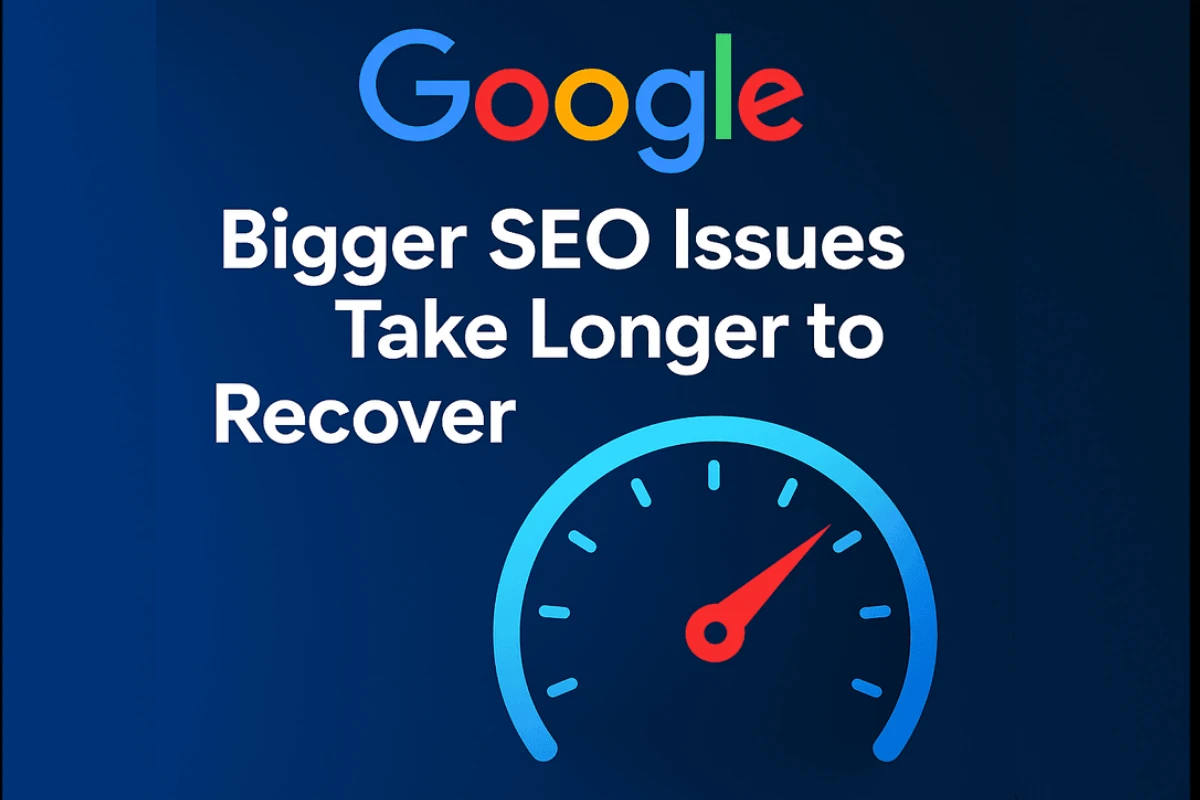Google Confirms: Larger & Older SEO Issues Take Longer to Recover in Search Results
Site owners who were suffering on a longer or large-scale basis may have to accept that they will recover slowly. Google’s Search Advocate John Mueller said that fixing big SEO problems doesn’t mean you are going to see changes in your Google rankings soon. A lot of recovery time depends on the extent of the problem, as well as how long the problem has occurred.
John’s comments come from a recent discussion on Bluesky where he responded to a site owner who stated they had removed a huge amount of unrelated content from their website, and they were concerned that their rankings hadn’t improved after making those changes. John Mueller’s response was eye-opening for a number of SEO professionals and webmasters.
What Exactly Did John Mueller Say?
He explained that Google has to have time to reprocess and re-evaluate a site after it has had large or long-term SEO issues. He explained with examples that if an SEO issue has been occurring for a long time, or is large, that it will be “quite some time” for the search ranking signals to change.
In his words:
“If it was a manual action, you would need to submit a reconsideration request. If it was not a manual action, then this process will take a while, especially if the issue was bigger/more impactful time frame wise”
This description is very helpful because it shows important distinctions: Not all SEO issues are treated the same. Quick fixes do not provide quick results since the site was being affected for potentially months or years before the fix.
Manual Action vs. Algorithmic Reprocessing
One key distinction that John clarified is between manual actions and algorithmic issues.
- Manual actions are when the Google webspam team implements a penalty. These penalties are apparent in Google Search Console, and to recover from one the site owner must submit a reconsideration request that signifies what fixes were made.
- If there was not a manual action, but your site has still suffered previously due to issues (like low-quality content and content that was unrelated), Google will depend upon its automated systems to recognize in time that it overlooks issues, and will re-evaluate their algorithmic ranking of your site. That process will be much slower going, especially if previous signals were strongly negative.
What was the site owner’s problem?
The site owner had filled the site with lots of content that did not relate to each other. While you may think that this content strategy is harmless (even meaning well to extend reach), unrelated content confuses Google’s understanding of what your site is about and what relevant associations are.
When the owner realized what they had done, they removed the unrelated content expecting an immediate ranking improvement. Mueller’s response highlighted that the period for users to actually rebuild perceived relevance with Google’s algorithm is much longer in this case than expected, especially when there was a large-scale cleanup.
Why does it take longer for recovery?
There are many reasons why Google might take longer to have another review of your site immediately after a major issue is resolved:
-
Re-Crawling and Re-indexing
Google has to recrawl and reindex many pages before making a further quality evaluation of a site.
-
Historical Signals
If your site has been sending bad signals to Google for a long time (e.g. spammy content, keyword stuffing, unrelated topics), those signals could remain and continue to affect the rankings until the negative signals have been replaced with new positive signals.
-
Algorithmic Trust
Like trust in life, algorithmic trust takes time to build. Google’s ranking systems need to see consistent quality signals over time before fully restoring your site’s authority.
-
Link Profile and User Behavior:
SEO is not only about content. There could have been bad user experiences from unrelated or poor-quality content, and these issues also need time to ‘heal’ if there are also higher bounce rates, or spammy backlinks.
Key Takeaways for Site Owners & SEOs
This is a good reminder for site owners and SEOs:
- You cannot expect changes to pay off immediately after fixing significant SEO mistakes.
- Be patient and keep developing ongoing, consistent quality, and relevant content!
- Use Google Search Console and continue to monitor for manual actions.
- If you were penalized, don’t forget to submit your reconsideration request.
- If you weren’t penalized but hit with algorithm changes, keep in mind that algorithms take longer to recognize — it might take weeks, if not months.
Most importantly, don’t take shortcuts that could harm your long-term view of your site. Instead, maintain topical relevance, site authority, and user trust right from the start.

